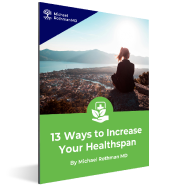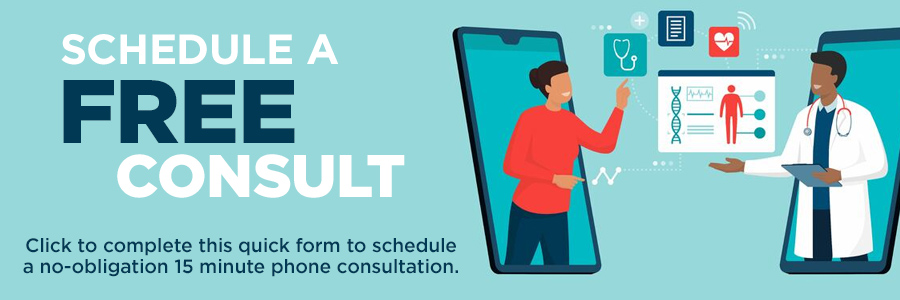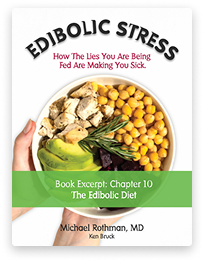According to the Center for Disease Control, heart disease is the number one killer in the United States, and high cholesterol is considered by many health professionals to be a leading cause of heart disease. However, contrary to popular misconception, while there may be an association between high cholesterol and heart disease in certain segments of the population, this does not mean that high cholesterol causes heart disease.
What is Cholesterol?
Cholesterol is an essential fatty substance that the cells and tissues in your body need in order to produce its protective cell membranes. Cholesterol is also used by your body to make vitamin D, produce sex hormones (like testosterone, progesterone and estrogen), other adrenal hormones (like pregnenolone, DHEA and cortisol), and bile salts. Because cholesterol is so vital to your body, your liver produces the cholesterol that your body needs to survive even if you do not consume any cholesterol in your diet. Additionally, cholesterol is so indispensable to your internal system that 90% of the cholesterol excreted into your bowels in the form of bile salts is reabsorbed and recycled back to your liver. You have to wonder, why would your body expend so much energy to make and retain cholesterol if is a toxic material? The only logical conclusion that an unbiased, intelligent person can come to is that in some way, cholesterol must be good for you!
Lowering the Cholesterol Standards
It is well known that oxidized (burnt) LDL (“bad”) cholesterol combines with calcium to form lesions known as plaque that form on your artery walls. These plaques can eventually clog up your cornary (heart) arteries and you can progress to have a heart attack. Many medical experts have spent decades educating the general public about the presumed danger of you having elevated cholesterol levels.
You may not be aware that over the past few decades, experts in the medical community have continued to lower the “normal” value for total cholesterol. When I first started medical school in 1982, “normal” total cholesterol was 240. Years later, “normal” levels were lowered to 220. Again, later on, “normal” cholesterol was further lowered to below 200. The most recent medical expert recommendations focus on keeping your LDL (so-called “bad” cholesterol) less than 100 and if you have risk factors for heart disease (previous heart attack, high blood pressure, diabetes, family history of heart disease, obesity…) less than 70.
You would think that these medical expert recommendations are based on sound and irrefutable scientific facts. However, would it surprise you to learn that for those persons over the age of 65, study after study has shown that the higher your cholesterol level, the longer your life span and the lower your risk for heart disease?
These same studies, published in prestigious medical journals also show that once your cholesterol drops below 160 (if you are over 65) your risk for a multitude of diseases (including heart disease) goes up dramatically.
Why is There Such Confusion and Conflicting Information About High Cholesterol?
Let’s assume you are a 40 year old person with a poor diet and maybe you don’t get enough sleep, you work too much, and you have a bunch of stressful situations and relationships to deal with. This combination of stressors can contribute to an inflammatory response in your body. This inflammation then sets off a series of reactions that create chemicals called free radicals that can injure the cell membranes of your tissues and effectively burn up these vital structures. One of the major roles of cholesterol in your body is to act as an anti-oxidant (or fire extinguisher) to protect your cell membranes from free radical damage.
So What Happens?
Your cholesterol goes up to put out the fire, gets burned in the process, combines with calcium and forms a plaque which ends up clogging your arteries and causing you to have a heart attack. Therefore, you have a situation where your blood cholesterol is high and your arteries have been clogged by burnt cholesterol. However, this does not mean that high cholesterol caused your heart attack, or that lowering your cholesterol through diet or medication will help you avoid having a heart attack. Just because there is an association between high cholesterol and heart attacks this does not mean that there is a “cause and effect” relationship.
High Cholesterol Desired after 65
Now, assume you are over 65 years old. You have experienced so much oxidative stress and free radical damage over your lifetime that your requirement for cholesterol is much higher than a younger person. This is why there is no association between high cholesterol and heart disease in older persons. In fact the exact opposite is true, higher cholesterol levels are associated with better health, longer life and less disease in those over 65!
What Should I Do?
You are being bombarded (and misinformed) on a daily basis about the dangers of high blood cholesterol levels and the harm caused be eating dietary cholesterol. Your doctor (or your wife, husband, and/or other family members) may be hounding you to “do something” about your cholesterol, advising you to go on a low cholesterol diet or your doctor may even be prescribing you cholesterol lowering drugs. But you need to ask yourself, do you really need to lower your cholesterol, or should you be targeting something else, such as the inflammation and free radicals in your body?
Lowering Cholesterol Methods Exposed
Most doctors will suggest a low cholesterol diet to improve your cholesterol levels and reduce your risk for heart attacks. The truth is that your diet and life style are absolutely vital for reducing your chance of developing heart disease. However, avoiding dietary cholesterol is not the answer. There is no doubt that the foods that you choose to eat and how these foods are cooked are the key to a true “heart healthy” diet.
You want to avoid foods that raise your blood sugar too high (leading to elevated insulin levels and diabetes), foods that are fried (filled with burnt, toxic free radicals) and foods that contain inflammatory vegetable oils (oils like soy oil and canola oil), Even foods that are intrinsically healthy like eggs, if fried, will contribute to your load of oxidative stress and free radical damage.
Isn’t It True That Statin Drugs Have Been Shown to Lower Your Risk for Heart Disease?
Let’s say your cholesterol levels were at a point where your doctor prescribes you statin drugs to decrease your cholesterol levels. You take this daily medication because you want to lower your cholesterol levels and decrease your chances of heart disease. However, statin drugs have other effects in addition to lowering your cholesterol levels; statin drugs also have an anti-inflammatory effect and this is probably the real reason that they have any positive effect at all. Consequently, the myriad studies that show statin treatments reduce your risk of heart disease have come to the erroneous conclusion that it is the cholesterol lowering effects of these powerful drugs that confer benefit. In fact, many (non-statin) drugs that lower cholesterol have been taken off the market because they increase risk for heart disease.
So what can you do to lower your risk of heart disease?
You need not be overly concerned with lowering cholesterol levels in your body. Rest assured that production of cholesterol is an essential function of your liver and limiting your dietary intake of cholesterol is rarely beneficial. Instead, you should concentrate on limiting the oxidative stress and inflammation in your body caused by the consumption of fast foods, sugar, and other toxic edible items. You should also attempt to identify and minimize stressors like work stress, emotional stress, poor quality sleep, lack of exercise, lack of fresh air and inadequate exposure to sunlight. These unhealthy stressors will only increase your inflammation and automatically escalate your need for and production of cholesterol. By working with Dr. Rothman, you can get the guidance you need to develop a plan to reverse the inflammation in your body and achieve wellness and balance in your life.
Are you suffering from high cholesterol? Come in for a consultation with Dr. Rothman by calling, 732-268-7663 and discover a more holistic approach to lowering your risk for heart diease.












